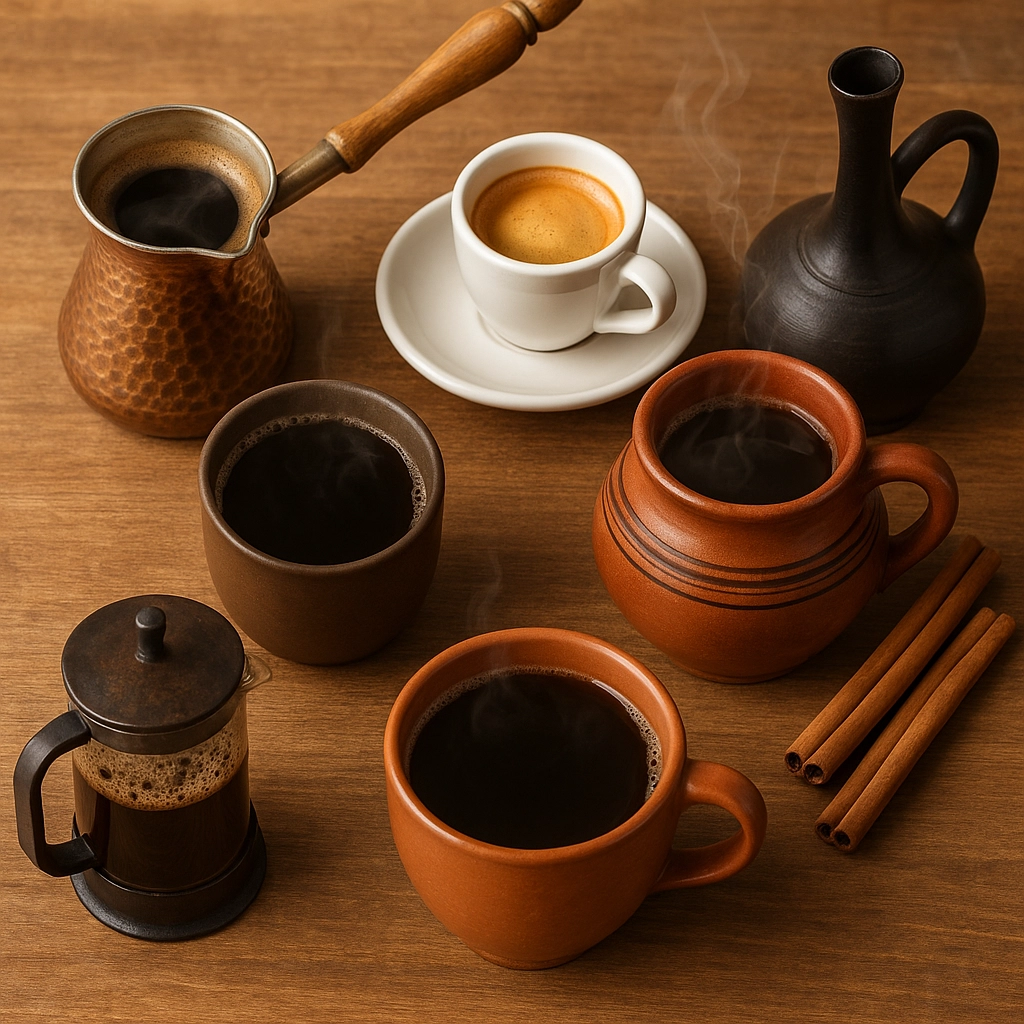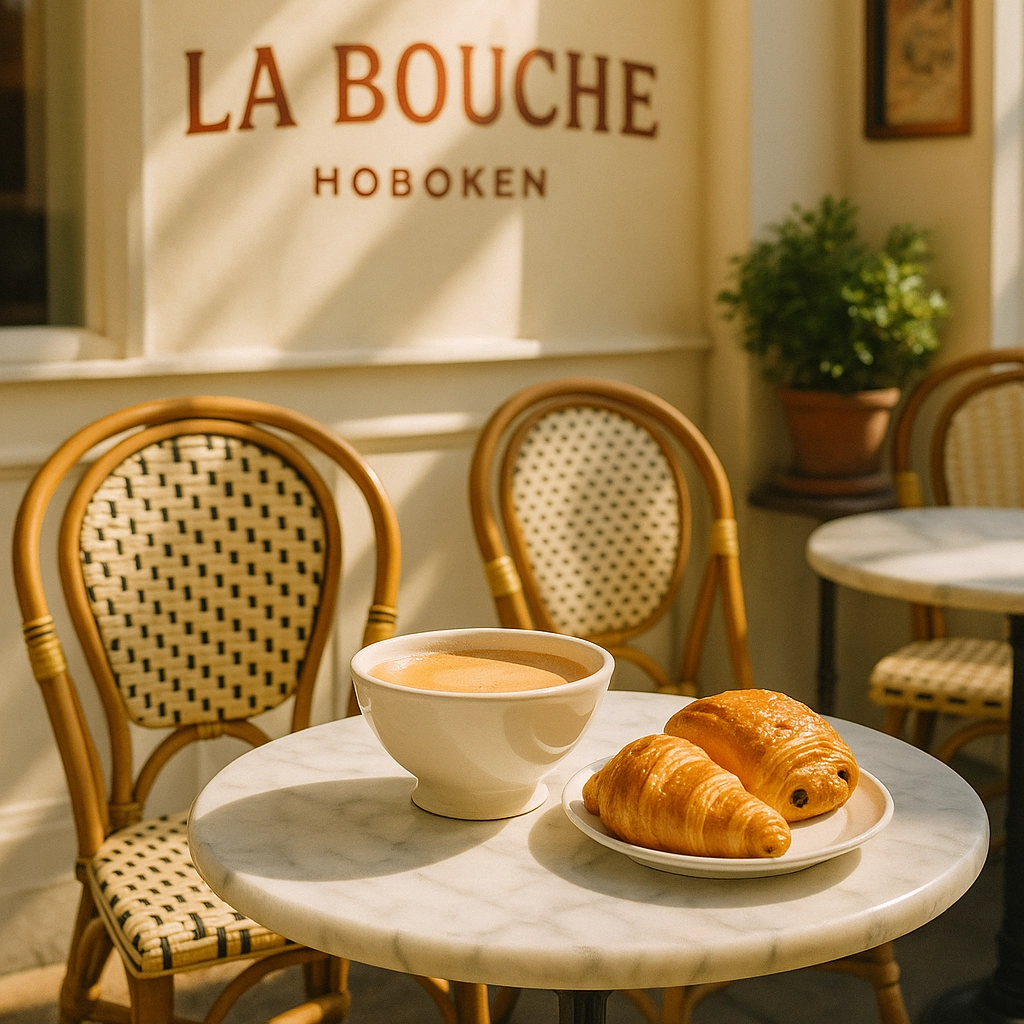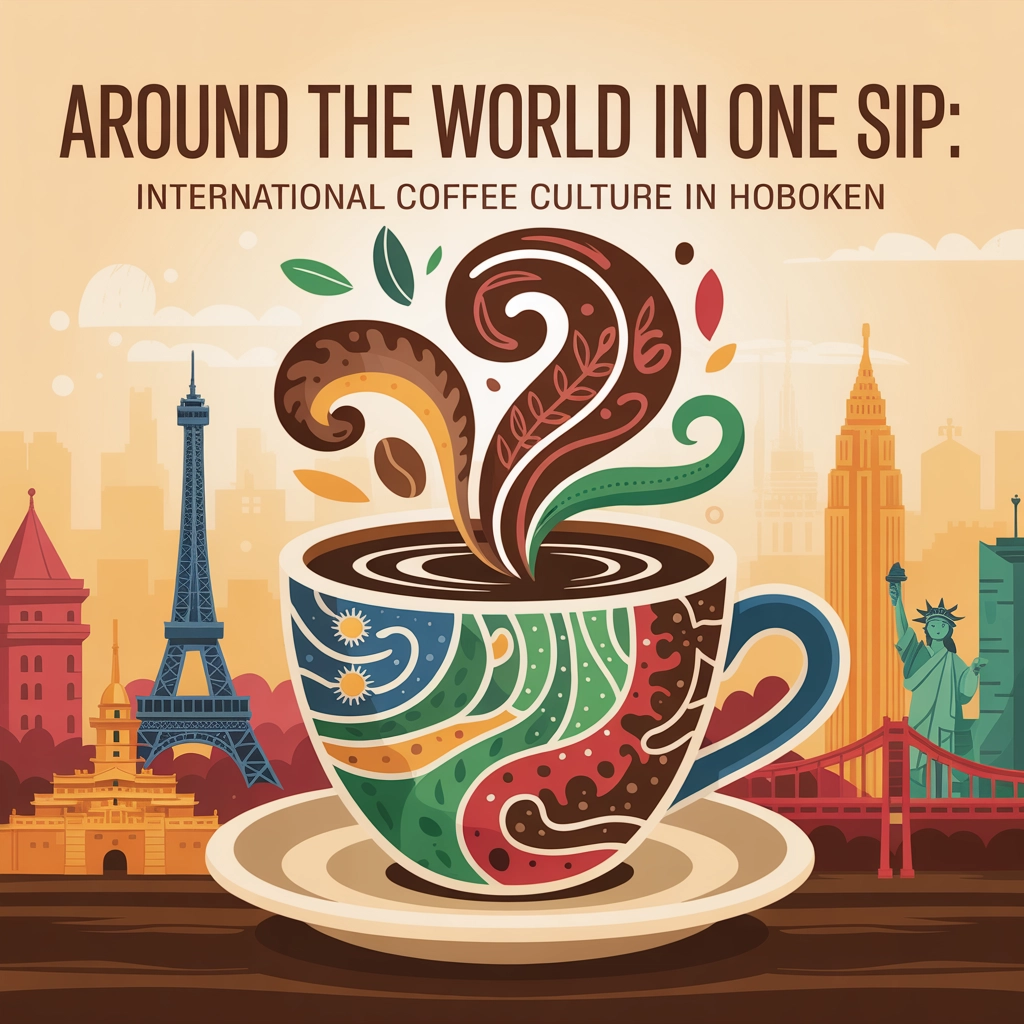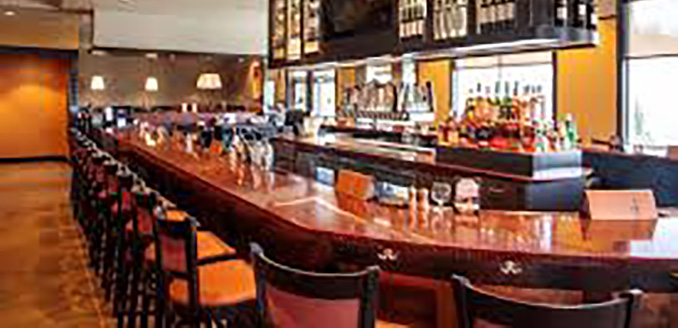In a city that spans just one square mile, Hoboken packs an impressive international punch when it comes to coffee culture. This bustling New Jersey hub across from Manhattan has evolved into a global coffee destination where caffeine enthusiasts can experience authentic brewing traditions from across the world without ever boarding a plane.
The Global Cup: Hoboken's International Coffee Renaissance
Coffee culture transcends borders. What began as berries discovered in Ethiopian highlands centuries ago has evolved into countless regional preparations, each telling a story of tradition, innovation, and cultural identity. In Hoboken, these diverse coffee narratives converge in an extraordinary collection of cafés, each offering a window into different corners of the global coffee landscape.
"Coffee is the universal language," says Khin, a local coffee enthusiast who compiled the original list of international cafés in Hoboken. "It's fascinating how each culture has developed its own relationship with essentially the same bean, creating completely different experiences."

Latin American Influences: Bold Flavors and Rich Traditions
Cafexico: A Mexican Coffee Journey
Tucked away on Washington Street, Cafexico brings the vibrant coffee traditions of Mexico to Hoboken. Mexican coffee culture, deeply influenced by its status as one of the world's largest coffee producers, shines through in their menu.
Their signature Café de Olla – traditional Mexican coffee brewed in a clay pot with cinnamon and piloncillo (unrefined cane sugar) – provides a sensory experience unlike anything else in town. The earthiness of the clay pot enhances the coffee's flavor profile, while the cinnamon adds warmth that perfectly complements the natural sweetness.
"We source directly from small-scale farmers in Veracruz and Chiapas," explains the café's owner. "Mexican coffee has distinctive notes of chocolate and nuts that we highlight through traditional preparation methods."
Beyond coffee, Cafexico completes the cultural experience with authentic conchas (Mexican sweet bread) and champurrado (a thick chocolate-based drink) during colder months.
Cafe Cartel: Colombian Coffee Excellence
Colombia's reputation for producing some of the world's finest arabica beans is well-deserved, and Cafe Cartel showcases why. This cozy spot on Garden Street specializes in single-origin Colombian coffees from regions like Huila, Nariño, and Tolima.
Their Pour-Over Flight offers an educational tasting experience, featuring three different regional Colombian coffees side by side, highlighting how terroir affects flavor. The café's standout offering might be their Colombian Cold Brew, steeped for 18 hours to create a remarkably smooth, low-acidity coffee with notes of caramel and dark chocolate.
"Colombian coffee culture is about quality, precision, and respect for the bean," says the café manager. "We try to honor that tradition while educating our customers about what makes these coffees so special."
Middle Eastern & African Origins: Coffee's Ancient Roots
HARAZ Coffee House: Yemen's Coffee Legacy
As one of the newest additions to Hoboken's coffee scene, HARAZ Coffee House offers perhaps the most historically significant coffee experience in the city. Yemen is where coffee was first commercially cultivated, and HARAZ honors this heritage with meticulous attention to detail.
Their beans are 100% organic and sun-dried, sourced directly from Yemeni farmers who've preserved traditional growing methods for generations. The café's signature offering is Al-Mokha, named after the Yemeni port from which coffee was first exported to the world. This small, intense brew showcases the distinctive wine-like acidity and earthy complexity that made Yemeni coffee famous centuries ago.
Don't miss their innovative fusion drinks like the Pistachio Rose Latte, which blends Middle Eastern flavors with modern coffee preparation. The café also serves authentic Middle Eastern pastries, including honey-soaked baklava and delicate saffron milk cake.

Cafe Vista: Turkish Coffee Rituals
For those seeking to experience one of the world's oldest coffee traditions, Cafe Vista delivers authentic Turkish coffee served with ceremonial attention to detail. Turkish coffee, recognized by UNESCO as an Intangible Cultural Heritage, represents coffee at its most elemental and profound.
Here, finely ground coffee is simmered (never boiled) in a special copper pot called a cezve, then served unfiltered in small cups. The result is intensely flavored coffee with a distinctively silky mouthfeel. At Cafe Vista, they maintain tradition by serving each coffee with a glass of water and a piece of Turkish delight.
"Turkish coffee isn't just about the drink itself," explains the café owner. "It's about hospitality, conversation, and taking time to be present. We encourage our customers to slow down and enjoy the experience."
The café's inviting atmosphere, with handwoven rugs and traditional copper accents, completes the cultural immersion.
Black Rail Coffee: Ethiopian Excellence
At Black Rail Coffee, customers can experience coffee from its birthplace – Ethiopia. This bright, airy café specializes in naturally processed Ethiopian beans that showcase the fruit-forward, complex profiles that make these coffees so prized by connoisseurs worldwide.
Their Yirgacheffe Pour-Over highlights the floral, citrusy notes characteristic of this famous growing region, while their Ethiopian Espresso offers a surprisingly bright, complex shot that challenges conventional expectations of espresso.
"Ethiopian coffee culture centers around the coffee ceremony," says the head barista. "It's a social ritual that can last hours, where coffee is roasted, ground, and brewed by hand while people connect and share stories."
While Black Rail has adapted these traditions to a modern café setting, they honor the spirit with monthly traditional Ethiopian coffee ceremonies featuring incense, freshly roasted beans, and communal serving.
European Café Culture: Refinement and Tradition
Dolce + Salato: Italian Coffee Perfection
Italy's coffee culture is perhaps the most influential globally, having given us espresso, cappuccino, and the very concept of the modern café. Dolce + Salato brings this tradition to Hoboken with uncompromising authenticity.
Their espresso follows strict Italian parameters: 7 grams of coffee extracted for 25 seconds to produce 25ml of intensely flavorful liquid with perfect crema. The cappuccino is equally traditional – equal parts espresso, steamed milk, and milk foam, served only before noon as Italians insist.
Beyond coffee, the café offers classic Italian pastries like cornetti (Italian croissants) and sfogliatelle (shell-shaped filled pastries), creating a complete Italian breakfast experience.
"In Italy, coffee is a quick, social ritual," explains the owner. "Our customers appreciate that we stay true to those traditions rather than adapting to American preferences."
La Bouche: French Café Elegance
French café culture is as much about ambiance as coffee itself, and La Bouche captures this perfectly. This charming spot feels transported directly from Paris, with its wicker chairs, marble tabletops, and unhurried atmosphere.
Their café au lait – equal parts brewed coffee and steamed milk – is the quintessential French coffee experience, best enjoyed alongside one of their expertly crafted pain au chocolat or croissants. For something more indulgent, their chocolat chaud (French hot chocolate) offers a thick, intensely flavorful alternative to coffee.
"French café culture is about taking time to appreciate simple pleasures," says the owner. "We wanted to create a space where people can pause and enjoy quality coffee without rushing."

Caribbean & Central American Highlights
bwè kafe: Haitian Coffee with Purpose
The name "bwè kafe" means "drink coffee" in Haitian Creole, reflecting this café's deep connection to Haiti's coffee heritage. Beyond serving exceptional Haitian coffee, bwè kafe operates with a social mission, supporting educational initiatives in Haiti through their coffee sales.
Their signature Haitian Blue showcases beans from Haiti's mountainous regions, offering a smooth, medium-bodied cup with subtle notes of chocolate and citrus. The café's bright, colorful aesthetic reflects Haiti's vibrant culture, while educational materials throughout the space inform customers about Haitian coffee production and the challenges faced by farmers.
"Haitian coffee has a rich history but faced decades of decline," explains the founder. "We're proud to support its revival while creating connections between our customers and producer communities."
Inclusive Coffee Experiences
Joey No Nuts: Allergy-Friendly Innovation
Coffee culture should be accessible to everyone, which is why Joey No Nuts has created Hoboken's first completely nut-free café environment. This innovative spot ensures that those with allergies can enjoy artisanal coffee without worry.
Their menu features creative alternatives to popular nut-based drinks, like their Sunflower Seed Latte (a delicious alternative to almond milk options) and Oat Milk Mocha made with sunflower seed butter instead of hazelnut spread.
"Coffee shops are community gathering places," says the owner. "We wanted to create a space where absolutely everyone feels safe and included, regardless of dietary restrictions."
Mojo Coffee Company: Sustainability Focus
While not tied to a specific international tradition, Mojo Coffee Company deserves mention for their commitment to sustainable sourcing practices that benefit coffee-growing communities worldwide. Their carefully curated selection rotates seasonally, featuring exceptional coffees from different origins prepared through multiple brewing methods.
Their educational "Origin Series" highlights a different coffee-producing country each month, offering tastings and information about that region's specific coffee traditions and challenges.
Beyond the Cup: Creating Community Through Coffee
What makes Hoboken's international coffee scene truly special isn't just the diversity of offerings but the way these cafés function as cultural ambassadors. Through coffee, residents can experience global traditions, engage with different perspectives, and connect with cultures that might otherwise feel distant.
"Coffee shops have always been places where ideas are exchanged," notes local food writer Daniel Morris. "In Hoboken, they're also places where cultural exchange happens naturally, creating a more connected community."
This cultural exchange extends beyond beverages to food pairings, music, decor, and even language, with many cafés incorporating phrases from their respective traditions into menus and signage.
Planning Your Hoboken Coffee Tour
For those looking to explore Hoboken's international coffee scene, consider these tips:
- Start early: Many cafés offer traditional breakfast pairings that complete the cultural experience
- Ask questions: Baristas are typically passionate about their coffee traditions and happy to explain unique aspects
- Try traditional preparation: Even if you typically order lattes, experiencing traditional preparations provides deeper cultural insights
- Join tasting events: Many cafés host regular cuppings or cultural celebrations that offer deeper engagement
Whether you're a dedicated coffee connoisseur or simply curious about global traditions, Hoboken's diverse café scene offers a unique opportunity to travel the world through your coffee cup—all within a single square mile.
Written by Michael Politz, Author of Guide to Restaurant Success: The Proven Process for Starting Any Restaurant Business From Scratch to Success (ISBN: 978-1-119-66896-1), Founder of Food & Beverage Magazine, the leading online magazine and resource in the industry. Designer of the Bluetooth logo and recognized in Entrepreneur Magazine's "Top 40 Under 40" for founding American Wholesale Floral. Politz is also the founder of the Proof Awards and the CPG Awards and a partner in numerous consumer brands across the food and beverage sector.







